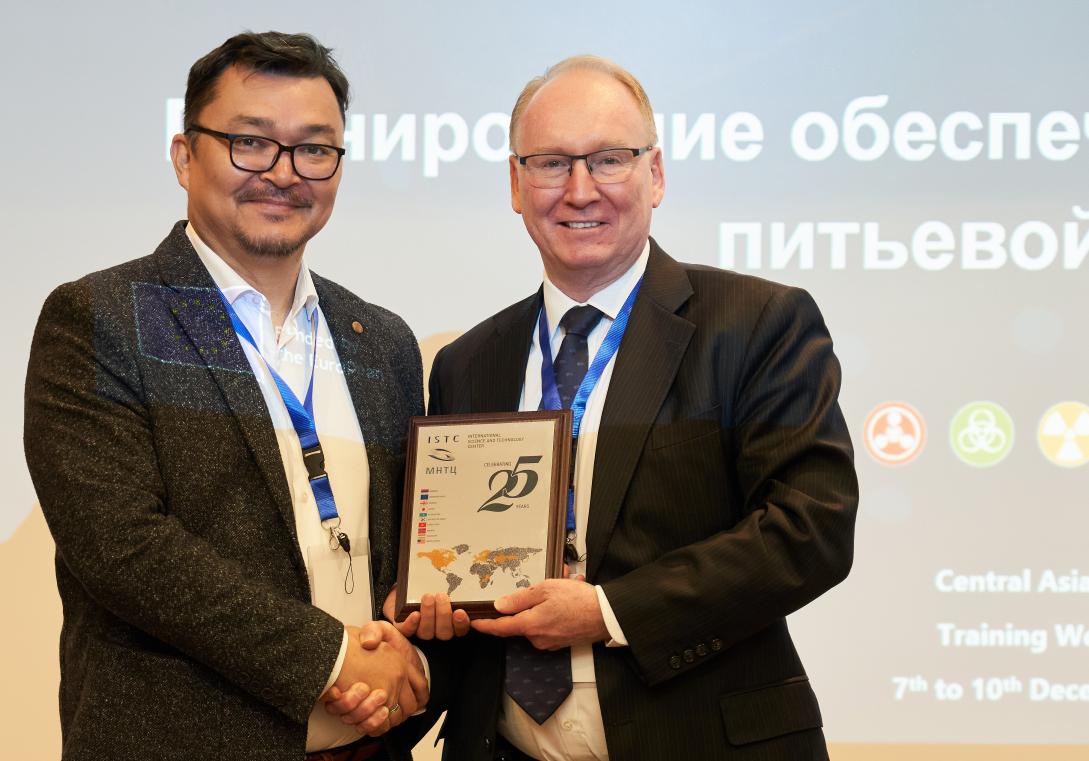100 Central Asian experts got trained on preparedness and response to mass gatherings

Mass gatherings, including sport events, religious occasions, festivals, concert and alike bring together people from all over the world. As such, mass gathering events carry a risk of public health emergencies. With transport options becoming more affordable and accessible, businesses operating on a global scale, it is expected that more mass gatherings will take place, greater numbers of nations will be hosting them, and participants will be travelling from an increasingly large and distant number of countries.
All of these factors introduce new challenges to national and international health security and the COVID19 crisis has dramatically highlighted the need for managing mass gatherings.
To respond to these challenges, over 100 experts from Kazakhstan, Kyrgyzstan, Mongolia, Pakistan, Tajikistan, Uzbekistan got together on 5 April 2022 in Tashkent, Uzbekistan, to be trained on preparedness and response to mass gatherings.
This training-of-trainers (ToT) is the first of the series of regional capacity building interventions that will be conducted by Project 87 “Preparedness and Response for Mass Gatherings and other health threats in Central Asia (PRECA)” implemented by the International Science and Technology Center (ISTC). The project is designed and delivered within the framework of EU’s Chemical Biological Radiological and Nuclear Risk Mitigation Centres of Excellence (CBRN CoE) Initiative financed by the European Commission and implemented by United Nations Inter-regional Crime and Justice Research Institute (UNICRI).
During the high-level opening plenary of the event, Mr. Bakhtiyor Gulyamov, Head of EU’s CBRN Centre of Excellence Regional Secretariat for Central Asia, highlighted that: “In the context of COVID-19, mass gathering events could trigger public health risks. To ensure mass gatherings are held as safely as possible, the project will support capacity building across Central Asian countries to ensure that all participants of mass gatherings and population at large are protected”.
Further, H. E. Ms. Charlotte Adriaen, Ambassador of the European Union (EU) to Uzbekistan pointed out, "Security issues are more than ever a priority, not only for Uzbekistan, but also for the European Union. It is also one of the key directions of the Enhanced Partnership and Cooperation Agreement, which is currently under negotiation. Within the EU-funded Project, we are happy to share European knowledge and technics to ensure that the right of people for public gatherings is followed in the best and safer manner.”

This training-of-trainers (ToT) will continue during the week of 5-8 April 2022. It includes a wide range of issues, including conducting risk assessments tailored for specific events, as well as operational planning, multi-sectoral coordination, surveillance systems and rapid response, testing capacity, contingency planning and public communication.
Background information:
The EU CBRN CoE Initiative is funded by the European Commission and implemented in cooperation with the United Nations Interregional Crime and Justice Research Institute (UNICRI) and the European Commission Joint Research Centre (JRC). The European External Action Service is also involved in the follow-up to the initiative. The initiative is developed with the technical support of relevant international and regional organizations, the EU Member States, and other stakeholders, through coherent and effective cooperation at the national, regional and international level. The initiative involves 62 countries in eight regions across the world.




